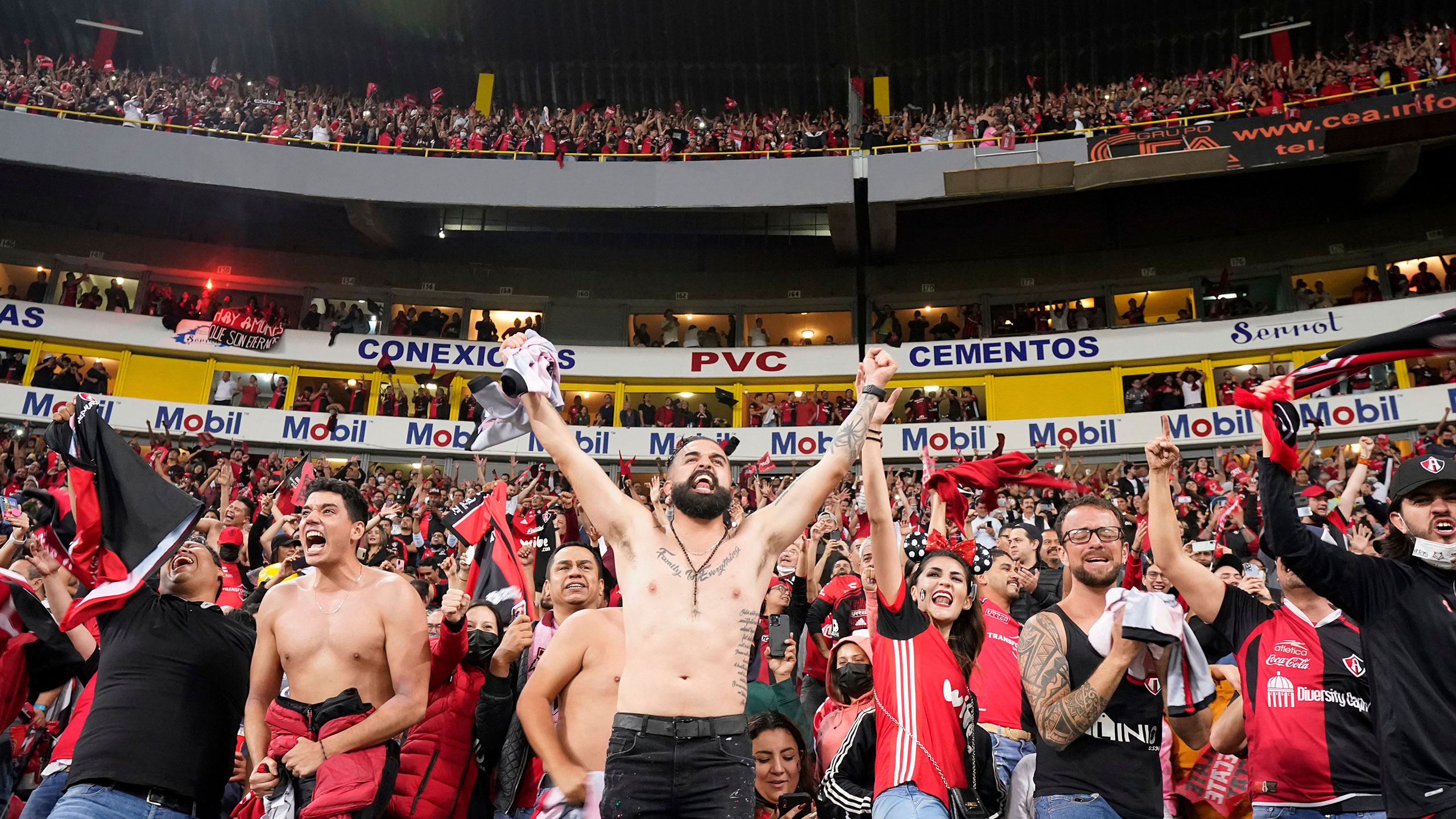Mexico soccer fans caught participating in a popular anti-gay chant will be banned from stadiums for five years, the Mexican Football Federation (FMF) announced this week.
The Jan. 17 decision is part of the federation’s latest effort to put an end to homophobic chants. The FMF’s four-pronged plan includes online ticket registration, an emphasis on positive fan experiences and enhanced stadium security. Fans must register online and present a QR code at the entrance of the stadium for identification purposes, and security will help identify those who participate in discriminatory behaviour to ensure they do not gain entry.
“We can’t tolerate discriminatory acts,” FMF president Yon de Luisa said during a news conference. “We can’t play in empty stadiums. We invite our fans to adopt these measures.”
Over the years, Mexican soccer fans have been known to direct a particular anti-gay epithet at opposing goalkeepers: the derogatory term is roughly translated as a male sex worker, but its meaning is equivalent to the English slur “f****t.” The chant originated in the mid-2000s at the club level and then spread to national games; its use reached a new level of prominence when it was aired during broadcasts at the 2014 World Cup in Brazil, as U.K. newspaper The Guardian reports.
“To call your opponent homosexual is definitely along a spectrum of machismo, whereby your opponent is weaker—less masculine,” said Joshua Nadel, author of Fútbol!: Why Soccer Matters in Latin America, in comments to The Guardian.
Within the last few years, the FMF has struggled to put a stop to the anti-gay chant.
It first cracked down in 2019, after the international soccer organization FIFA enacted a new three-step procedure to stop discriminatory behaviour. It included stopping a match and giving a warning to fans, suspending a match and sending players to the locker room or ending the match altogether.
The FMF created anti-discrimination campaigns and urged fans to refrain from using the chant. The federation worked with match organizers on announcements and messaging, warning fans they would be ejected from games if caught.
But the Mexican soccer federation has also sent mixed messages regarding the epithet: it wasn’t until last year that FMF finally acknowledged the word being chanted was discriminatory, per Yahoo! Sports. Fans have long argued that the word has multiple meanings and isn’t used to discriminate against gay people, but FARE, an anti-discrimination group, has deemed the word a “homophobic slur” that refers to “gay men in a derogatory way.”
“We understand that, even if it doesn’t go with that intent, if other people feel it that way, then it is that way,” de Luisa told Yahoo! Sports in an interview. “That’s why we want to eradicate it.”
Even as the FMF takes unprecedented steps to tackle homophobia, the use of the term has not ceased, leading to multiple fines and disciplinary actions. In June 2021, FIFA decided Mexico’s first two World Cup qualifiers would be played in an empty stadium due to fan behaviour. The organization later reduced the punishment, and fans returned to Mexico City’s Estadio Azteca for qualifiers in October.
Fans have reportedly continued to chant the slur in games against Canada and Honduras. Last November, FIFA handed Mexico another two-stadium ban and a $110,000 fine.
The federation hopes to have the new measures implemented in time for a March 24 qualifier against the United States.


 Why you can trust Xtra
Why you can trust Xtra


